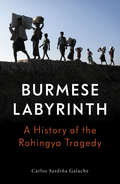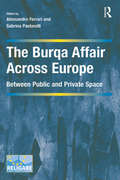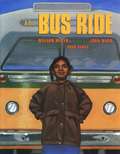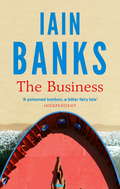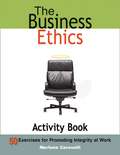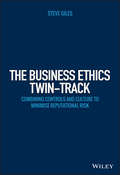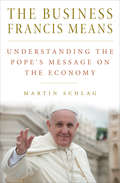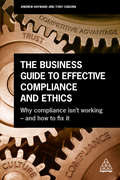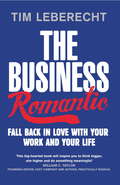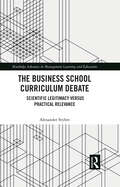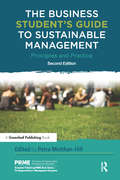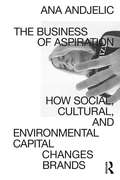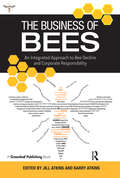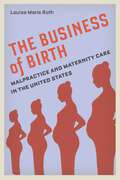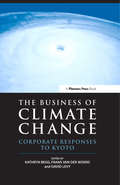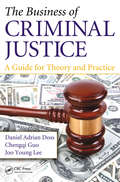- Table View
- List View
The Burglary
by Betty MedsgerThe never-before-told full story of the 1971 history-changing break-in of the FBI offices in Media, Pennsylvania, by a group of unlikely activists--quiet, ordinary, hardworking Americans--that made clear the shocking truth and confirmed what some had long suspected, that J. Edgar Hoover had created and was operating his own shadow Bureau of Investigation.The book shows how the break-in, and subsequent release of the contents of the FBI's files to newspapers across the country, upended the public's perception of the up-till-then inviolate head of the Bureau, paving the way for the FBI's overhaul for the first time since its inception forty-seven years before, in 1924, and setting the stage for the sensational release three months later by Daniel Ellsberg of the top-secret seven-thousand-page Pentagon study of U.S. decision making regarding the Vietnam War that became known as the Pentagon Papers.
The Burmese Labyrinth
by Carlos Sardina GalacheA first-hand account of the complex, bloody history of Myanmar and the origins of the ethnic cleansing of the RohingyasIn 2011, Myanmar embarked in a democratic transition from a brutal military rule that culminated four years later, when the first free election in decades saw a landslide for the party of celebrated Nobel Prize winner Aung San Suu Kyi. Yet, even as the international community was celebrating a new dawn, old wars were raging in the northern borderlands. A crisis was emerging in western Arakan state where the regime intensified its oppression of the vulnerable Muslim Rohingya community. By 2017, the conflict had escalated into a military onslaught against the Rohingya that provoked the most desperate refugee crisis of our times, as over 750,000 of them fled their homes to neighbouring Bangladesh.In The Burmese Labyrinth, journalist Carlos Sardiña Galache gives the in depth story of the country. Burma has always been an uneasy balance between multiple ethnic groups and religions. He examines the deep roots behind the ethnic divisions that go back prior to the colonial period, and so shockingly exploded in recent times. This is a powerful portrait of a nation in perpetual conflict with itself.
The Burn Pits: The Poisoning of America's Soldiers
by Joseph Hickman“There’s a whole chapter on my son Beau… He was co-located [twice] near these burn pits.”–Joe Biden, former Vice President of the United States of AmericaThe Agent Orange of the 21st Century… Thousands of American soldiers are returning from the battlefields of Iraq and Afghanistan with severe wounds from chemical war. They are not the victims of ruthless enemy warfare, but of their own military commanders. These soldiers, afflicted with rare cancers and respiratory diseases, were sickened from the smoke and ash swirling out of the “burn pits” where military contractors incinerated mountains of trash, including old stockpiles of mustard and sarin gas, medical waste, and other toxic material.This shocking work, now for the first time in paperback, includes: Illustration of the devastation in one soldier’s intimate story A plea for help Connection between the burn pits and Major Biden’s unfortunate suffering and death The burn pits’ effects on native citizens of Iraq: mothers, fathers, and children Denial from the Department of Defense and others Warning signs that were ignored and much moreBased on thousands of government documents, over five hundred in-depth medical case studies, and interviews with more than one thousand veterans and active-duty GIs, The Burn Pits will shock the nation. The book is more than an explosive work of investigative journalism—it is the deeply moving chronicle of the many young men and women who signed up to serve their country in the wake of 9/11, only to return home permanently damaged, the victims of their own armed forces’ criminal negligence.
The Burning Room (Harry Bosch Series #17)
by Michael ConnellyLos Angeles Detective Harry Bosch tackles a cold case unlike any he's ever worked, in the new legal thriller from the bestselling author of THE LINCOLN LAWYER and THE BLACK ECHO, Michael Connelly.In the LA Police's Open-Unsolved Unit, not many murder victims die almost a decade after the crime. So when a man succumbs to complications from being shot by a stray bullet ten years earlier, Bosch catches a case in which the body is still fresh, but any other evidence is virtually non-existent.Now Bosch and his new partner, rookie Detective Lucia Soto, are tasked with solving what turns out to be a highly charged, politically sensitive case. Starting with the bullet that's been lodged for years in the victim's spine, they must pull new leads from years-old information, which soon reveals that this shooting may have been anything but random in this gripping police procedural.
The Burning Room (Harry Bosch Series #17)
by Michael ConnellyLos Angeles Detective Harry Bosch tackles a cold case unlike any he's ever worked, in the new legal thriller from the bestselling author of THE LINCOLN LAWYER and THE BLACK ECHO, Michael Connelly.In the LA Police's Open-Unsolved Unit, not many murder victims die almost a decade after the crime. So when a man succumbs to complications from being shot by a stray bullet ten years earlier, Bosch catches a case in which the body is still fresh, but any other evidence is virtually non-existent.Now Bosch and his new partner, rookie Detective Lucia Soto, are tasked with solving what turns out to be a highly charged, politically sensitive case. Starting with the bullet that's been lodged for years in the victim's spine, they must pull new leads from years-old information, which soon reveals that this shooting may have been anything but random in this gripping police procedural.
The Burqa Affair Across Europe: Between Public and Private Space (Cultural Diversity and Law in Association with RELIGARE)
by Alessandro Ferrari Sabrina PastorelliIn recent years, the wearing of the full-face veil or burqa/niqab has proved a controversial issue in many multi-cultural European societies. Focussing on the socio-legal and human rights angle, this volume provides a useful comparative perspective on how the issue has been dealt with across a range of European states as well as at European institutional level. In so doing, the work draws a theoretical framework for the place of religion between public and private space. With contributions from leading experts from law, sociology and politics, the book presents a comparative and interdisciplinary approach to one of the most contentious and symbolic issues of recent times.
The Bus Ride
by William Miller John WardA black child protests an unjust law in this story loosely based on Rosa Parks' historic decision not to give up her seat to a white passenger on a bus in Montgomery, Alabama, in 1955.
The Business
by Iain BanksKate Telman is a senior executive officer in The Business, a powerful and massively discreet transglobal organisation. Financially transparent, internally democratic and disavowing conventional familial inheritance, the character of The Business seems, even to Kate, to be vague to the point of invisibility. It possesses, allegedly, a book of Leonardo cartoons, several sets of Crown Jewels and wants to buy its own State in order to acquire a seat at the United Nations.Kate's job is to keep abreast of current technological developments and her global reach encompasses Silicon Valley, a ranch in Nebraska, the firm's secretive Swiss headquarters, and a remote Himalayan principality. In the course of her journey Kate must peel away layers of emotional insulation and the assumptions of a lifetime. She must learn to keep her world at arm's length. To take control, she has to do The Business.
The Business
by Iain BanksKate Telman is a senior executive officer in The Business, a powerful and massively discreet transglobal organisation. Financially transparent, internally democratic and disavowing conventional familial inheritance, the character of The Business seems, even to Kate, to be vague to the point of invisibility. It possesses, allegedly, a book of Leonardo cartoons, several sets of Crown Jewels and wants to buy its own State in order to acquire a seat at the United Nations.Kate's job is to keep abreast of current technological developments and her global reach encompasses Silicon Valley, a ranch in Nebraska, the firm's secretive Swiss headquarters, and a remote Himalayan principality. In the course of her journey Kate must peel away layers of emotional insulation and the assumptions of a lifetime. She must learn to keep her world at arm's length. To take control, she has to do The Business.
The Business Ethics Activity Book: 50 Exercises for Promoting Integrity at Work
by Marlene Caroselli<P>In an age of ethical decay at organizations of every type, a call is being sounded for accountability.<P> Accordingly, companies must educate their employees and executives regarding acceptable practice. The Business Ethics Activity Book presents an array of provocative activities that will help encourage a more ethical approach to:* Leadership: promoting courage, commitment, and moral responsibility* Workplace conduct: building an ethical environment on individual behavior* Salesmanship: exploring the relationships between sellers and their customers* Management: leading employees by example in daily situations* Teamwork: fostering group behavior that reflects the company’s moral outlookEach section features an interview with a leading ethicist, and every activity provides step-by-step instructions. Also, discussion prompts and suggestions for variations enable the trainer or leader to expand each exercise’s application.<P> These exercises will push organizations to challenge the climate of questionable or unexamined ethics and recommit themselves to responsible business methods.
The Business Ethics Twin-Track
by Steve GilesInstitute a proactive reputational management framework that matches individual behaviour to organizational values The Business Ethics Twin-Track is a practical guide to reputational risk management. A deep exploration of the concept of reputation, the ways in which it can suffer, and the consequences when it does, the book outlines an ethics controls framework that can mitigate risk and improve business performance. Readers will learn how to identify and manage weaknesses, and how to institute a system of governance that embeds proper, ethical conduct into the corporate culture. A clear set of controls and procedures provides actionable instruction that can be customised to suit the organisational structure, and discussion of historical and international ethics provides the context for implementation. Case studies illustrate the real-world applications, while interviews with executives from a variety of sectors provide important practical insights into some of the key issues discussed in the book. The law regulates behaviour in health and safety and financial crime, but otherwise, conduct is largely determined by the culture, ethics and values of an organisation. Effective reputation management is complex, and often difficult to achieve, as much of the available information on the topic is more theoretical than practical. This book bridges the gap by providing the tools that will help managers to: Implement a modern ethics control framework, encompassing codes, officers, reporting lines and training Consider the role of the media and social media in reputational damage to individuals and organisations Analyse the key controls in responsibility and governance frameworks from around the world Determine the causes and controls of conduct risk, including incompetence, negligence and criminality Today's fast-paced media environment means corporate reputations can be obliterated in moments, and damage limitation is often too little, too late. Adopting the measures set out in this book will embed ethics into the culture, and match people's behaviours to the organisation's values.
The Business Francis Means: Understanding the Pope's Message on the Economy
by Martin SchlagAn overview of Pope Francis&’s teachings on money and morality that bridges the gap between political sides. Pope Francis, generally speaking, has thus far chosen to concentrate his papacy on social justice issues, as opposed to doctrinal or liturgical issues. This has led to Francis being hailed as a hero to many on the left, while it has made some conservative supporters of St. John Paul II and Pope Emeritus Benedict XVI disappointed and uncomfortable, even as they love and appreciate his person and gestures of mercy and compassion. Some find his teachings difficult to embrace, especially those concerning business and the economy. Pope Francis has spoken of building bridges as part of what it is to be Christian, but aspects of his message seem to be just constructing walls between the Holy Father and groups of the faithful. The Business Francis Means aims to break through these walls, showing that Pope Francis has something to say to all Christians. His message, taken as a whole, keeps us from dividing the &“seamless garment&” of Christ: he reminds the conservatives of the problems of inequality and poverty, and the liberals that social justice is not enough—the Church is the bride of Christ, not a social institution or an NGO. Martin Schlag summarizes and explains the message of Pope Francis on business and the economy in this compact volume. The Business Francis Means will be of great interest to the Catholic layperson, especially one involved in political or economic life.
The Business Guide to Effective Compliance and Ethics: Why Compliance isn't Working - and How to Fix it
by Andrew Hayward Tony OsbornAcross the world organizations continue to be damaged and brought down by systemic non-compliance or the misdeeds of a few, and newspapers abound with examples of corporate and NGO scandals and crimes. This despite the increasing ethical demands stakeholders are making of business, the exposing power of social media, the proliferating requirements of compliance laws and regulations, and the burgeoning numbers of policies, procedures and compliance officers which have been put in place in response. So what's going on? Why isn't compliance working? The Business Guide to Effective Compliance and Ethics examines how rules-based, tick-box, defensible compliance continues to fail, and lays out a new approach for organizations seeking to flourish and succeed.Written for any organization and businesses large and small, it provides clear, thorough and practical guidance for practitioners and decision-makers. It explains in layman's terms the skills, tools and mindset needed to develop and deliver a best practice compliance and ethics programme - one that meets the requirements made by law, stakeholders and society, and protects your organization from risk of fines, penalties and reputational damage. But this is also a book for all those interested in how to build employee engagement and motivation. The Business Guide to Effective Compliance and Ethics demonstrates the value - including competitive advantage, career satisfaction, employee and customer loyalty, and brand enhancement - that a truly effective compliance and ethics programme can bring when it is working hand in hand with a values-based culture of shared ownership.
The Business Leader's Guide to the Low-carbon Economy
by Larry ReynoldsRising energy prices and concerns about climate change are driving us towards a new kind of economy - a low-carbon economy. What will this low-carbon economy be like, and what does your business have to do to prosper in this new business environment? Larry Reynolds shows how successful organisations are already learning to be more energy efficient, manage their carbon footprint, adapt to climate change and become truly sustainable. As well as explaining how to future-proof your organisation against possible threats, The Business Leader’s Guide to the Low-carbon Economy, tells you how to make the most of the many opportunities that the low-carbon economy will bring, especially in growing profits from new products and services. It is your guide to creating an organisation that will thrive in the twenty-first century. While there are plenty of published books about 'going green', there are none which explain the low-carbon economy and how to thrive in it. This book will fill that important gap. Drawing on examples from across industries, including businesses such as Asda, BT, Cargill, Coca Cola, Co-operative Group, Eurostar, Marks and Spencer, Tesco, Tesla, Walker's Crisps, Walmart and ZipCar, Larry Reynolds shows how today’s successful organisations are already benefiting from the coming low-carbon economy.
The Business Romantic: Fall back in love with your work and your life
by Tim LeberechtTop 10 Motivational Books of 2015 - Inc.comTop 10 Creative Leadership Books of 2015 - ForbesAgainst the backdrop of eroding trust in capitalism, pervasive technology, big data, and the desire to quantify all of our behaviours, The Business Romantic makes a compelling case that we must meld the pursuit of success and achievement with romance if we want to create an economy that serves our entire selves.A rising star in data analytics who is in love with the intrinsic beauty of spreadsheets; the mastermind behind a brand built on absence; an Argentinian couple who revolutionize shoelaces; the founder of a foodie-oriented start-up that creates intimate conversation spaces; a performance artist who offers fake corporate seminars for real professionals - these are some of the innovators readers will meet in this witty, deeply personal, and rousing journey through the world of Business Romanticism.The Business Romantic not only provides surprising insights into the emotional and social aspects of business but also presents 'Rules of Enchantment' that will help both individuals and organisations construct more meaningful experiences for themselves and others.The Business Romantic offers a radically different view of the good life and outlines how to better meet one's own desires as well as those of customers, employees, and society. It encourages readers to expect more from companies, to give more of themselves, and to fall back in love with their work and their lives.
The Business Rules: Protect Yourself and Your Company From Over 100 Hidden Pitfalls
by Jo HaighThe business world is awash with legal pitfalls and opportunities. If you own or run a small-to-medium sized business (with a turnover of up to 10 million) you cannot afford to miss out on this book. Jo Haigh is a business expert who gives presentations to companies on how they can protect themselves - as individuals and as a group - from a range of potentially fatal pitfalls. In this accessible and practical book, she highlights essential - yet very often unknown - business practice to provide valuable insight and guidelines to alert and arm you before you enter the proverbial lion's den of the business world. The Business Rules draws on current legislation and case histories. It covers approximately 80 key topics, divided into sections: Business structure; Funding; Compliance; People and personal liabilities; Management; Tax and accounting; Exiting
The Business Rules: Protect yourself and your company from over 100 hidden pitfalls
by Jo HaighThe business world is awash with legal pitfalls and opportunities. If you own or run a small-to-medium sized business (with a turnover of up to 10 million) you cannot afford to miss out on this book. Jo Haigh is a business expert who gives presentations to companies on how they can protect themselves - as individuals and as a group - from a range of potentially fatal pitfalls. In this accessible and practical book, she highlights essential - yet very often unknown - business practice to provide valuable insight and guidelines to alert and arm you before you enter the proverbial lion's den of the business world. The Business Rules draws on current legislation and case histories. It covers approximately 80 key topics, divided into sections: Business structure; Funding; Compliance; People and personal liabilities; Management; Tax and accounting; Exiting
The Business School Curriculum Debate: Scientific Legitimacy versus Practical Relevance (Routledge Advances in Management Learning and Education)
by Alexander StyhreWith more than 14,000 business schools worldwide, what is included in their curricula matters for how the economy and the corporate system are managed. Business schools should be subject to scholarly inquiries and critical reflection. While many studies of business schools examine its general role in the tertiary education system and in society more broadly, this volume examines how one specific theoretical perspective and a normative model derived therefrom were developed and gradually appropriated within the business school setting. This volume demonstrates that agency theory, based on a daring conjecture that firms can be construed as bundles of contacts, rose to prominence in the business school context. It examines how the elementary proposition of agency theory, that the firm is to be considered theoretically and practically as a "nexus of contracts," was never consistent with corporate law and contract law, and it was empirically unsubstantiated. Business schools are under pressure to teach not only practically useful theories and models, but also theories that are also scientifically qualified. Despite having this ambition, certain theories are widely taught despite failing to live up to such declared ambitions, which means that business schools may be criticized for including theories on ambiguous grounds in the curricula. This book examines how business schools seek to honour the ambition to teach both scientifically verified theories and practically useful concepts and models, and how the tensions derived from this duality may be problematic to handle. It will be of interest to researchers, academics, and advanced students in the fields of management education, organizational studies, and legal theory.
The Business Student's Guide to Sustainable Management: Principles and Practice (The Principles for Responsible Management Education Series)
by Petra Molthan-HillThe Business Student’s Guide to Sustainable Management has become a core textbook for business undergraduates. With a full introduction to sustainable management, the textbook covers all subject areas relevant to business students. This second edition features fully updated chapters on how to integrate the Sustainable Development Goals into accounting, marketing, HR and other subjects in management and business studies. Furthermore, this second edition offers brand new chapters on how to teach the Principles for Responsible Management Education (PRME) in any business discipline, how to explore new business models designed to support sustainable development and how to crowdsource for sustainable solutions. The book contains over 40 ready-made seminars/short workshops which enable teachers and students to integrate the Sustainable Development Goals (SDGs) into every discipline in business, including economics, operations, marketing, HR, and financial reporting. Each chapter follows the same easy-to-use format. The Business Student’s Guide to Sustainable Management provides a true treasure chest of materials to support staff wanting to integrate sustainability into their teaching and provides support to effectively embed sustainability in the curriculum. The chapters also offer a starting point in developing teaching units for Masters and MBA students. The material is not just useful to people in business schools, but to those involved in wider scale curriculum change, and those looking to make links between different disciplines (for example, how to teach system thinking, corporate peace-making and the crowdsourcing of sustainable solutions). Online Teaching Notes to accompany each chapter are available on request with the purchase of the book.
The Business and Human Rights Landscape
by Jena MartinThe adoption of the United Nations Guiding Principles on Business and Human Rights in 2011 marked a watershed moment, establishing the first global standards for preventing human rights abuses by business. In light of this paradigm shift, The Business and Human Rights Landscape offers the most comprehensive analysis to date of the current legal framework. It includes in-depth explorations of the UN Guiding Principles from both theoretical and practical standpoints, with case studies ranging from the Rana Plaza building collapse to Kenyan resource extraction. Bookending current analyses are historical accounts (discussing the colonial slave trade) and forward-looking perspectives (analyzing labor's role). Bringing together top scholars from across the globe, The Business and Human Rights Landscape represents essential reading for anyone interested in the past, present, or future of business and human rights.
The Business of Aspiration: How Social, Cultural, and Environmental Capital Changes Brands
by Ana AndjelicNot long ago, wearing real fur was a signal of wealth and status. Now, it’s a signal of ignorance. Thanks to luxury rental and resale services, these days anyone can walk around in a Gucci belt. But not everyone knows that Rimowa dropped a new suitcase or who made their food and clothes. Wokeness is a modern class distinction. For the longest time, brands have operated according to the Veblen logic that status is linked to wealth and desirability to price. Now they have the opportunity to flip the script of aspiration and link worth and values to their success. Aimed at marketers, entrepreneurs, and advertising professionals, this book is full of analysis, examples, and tools of how to use the modern aspiration economy to shift a brand narrative and competitive strategy, create and distribute brand symbols, and ensure that a brand’s products and services create both monetary and moral value.
The Business of Bees: An Integrated Approach to Bee Decline and Corporate Responsibility
by Jill Atkins Barry AtkinsOur bee populations are under threat. Over the past 60 years, they have lost much of their natural habitat and are under assault from pesticides and intensive farming. We rely on bees and other insects to pollinate our fruit and vegetables and, without them, our environment and economy will be in crisis.The Business of Bees provides the first integrated account of diminishing bee populations, as well as other pollinators, from an interdisciplinary perspective. It explores the role of corporate responsibility and governance as they relate to this critical issue and examines what the impact will be on consumers, companies, stock markets and ultimately on global society if bee populations continue to decline at a dangerous rate.The book considers the issue of global bee population decline from a variety of disciplines, combining the perspectives of academics in accounting, science and humanities with those of practitioners in the finance industry. The chapters explore the impact of the rapid decline in pollinator populations on the natural world, on corporations, on the stock market and on accounting. The Business of Bees will be essential reading for those in academia, business and finance sectors and anyone invested in the future of our planet.
The Business of Birth: Malpractice and Maternity Care in the United States
by Louise Marie RothHow the fear of malpractice affects mothers and reproductive choicesGiving birth is a monumental event, not only in the personal life of the woman giving birth, but as a medical process and procedure. In The Business of Birth, Louise Marie Roth explores the process of giving birth, and the ways in which medicine and law interact to shape maternity care.Focusing on the United States, Roth explores how the law creates an environment where medical providers, malpractice attorneys, and others limit women’s rights and choices during birth. She shows how a fear of liability risk often drives the decision-making process of medical providers, who prioritize hospital efficiency over patient safety, to the detriment of mothers themselves.Ultimately, Roth advocates for an approach that protects the reproductive rights of mothers. A comprehensive overview, The Business of Birth provides valuable insight into the impact of the law on mothers, medical providers, maternity care practices, and others in the United States.
The Business of Climate Change: Corporate Responses to Kyoto
by David Levy Kathryn Begg FRANS VAN DER WOERDIn recent years climate change has become a leading issue on both the business and political agenda. With the Kyoto Protocol to the UN Framework Convention on Climate Change now ratified, business is bracing itself for the reality of serious regulation on the reduction of greenhouse gas emissions.The Business of Climate Change presents a state-of-the-art analysis of corporate responses to the climate change issue. The book describes and assesses a number of recent business approaches that will help to identify effective strategies and promote the dissemination of proactive corporate practices on climate change worldwide. By identifying the factors that cause companies to pursue low-carbon strategies and support the Kyoto process, the book will also be helpful to governments in formulating policy.Business and industry have a crucial role to play in the implementation of the Kyoto Protocol. They are major emitters of greenhouse gases, and pressure is mounting for them to engage in a range of mitigation strategies, from emission inventorying and trading schemes to investments in low-carbon technologies. Behind the scenes a number of companies have started to develop strategies to curtail greenhouse gas emissions.These strategies can be very diverse in nature. At a political level, companies try to influence policy implementation and, more specifically, to test ideas in anticipation of possible regulation on the climate change issue. At a more practical level, there are a burgeoning number of initiatives to conserve energy use in production, transportation and buildings, to develop renewable sources of energy, to measure carbon emissions and sequestration at a detailed level, and to develop various markets for trading carbon credits among companies and countries. Some technologies, such as hybrid cars and compact fluorescent lighting, are now market realities.Common to all of these initiatives is that they operate in an environment of high complexity and uncertainty. The political implementation of the Kyoto Protocol remains uncertain and many details remain unspecified. Economic instruments such as emission trading are favoured, but their mechanisms are still hotly debated and the future price of credits is unknown. New markets for low-emission products and technologies are beginning to appear, but there are currently few regulatory drivers to assist their development. The impact of potential regulation on business will vary tremendously between companies and sectors. The fossil fuel and energy sectors fear the economics of action, while sectors such as insurance and agriculture fear the economics of inaction. Combined with the remaining uncertainties about what form climate change may take, corporate responses to reduce risks have to differentiate between sectors and have to be flexible. For individual companies, these big uncertainties demand new thinking and contingency planning.The Business of Climate Change is split into four sections: "Introduction and overview" presents a broad perspective on business and climate policies
The Business of Criminal Justice: A Guide for Theory and Practice
by Daniel Adrian Doss Chengqi Guo Joo Young LeeThis book represents the manifestation of a new presentation of old perspectives within the discipline of criminal justice. It contains practical considerations of rendering such decisions, it is expected to be an appropriate reference among practitioner personnel.

